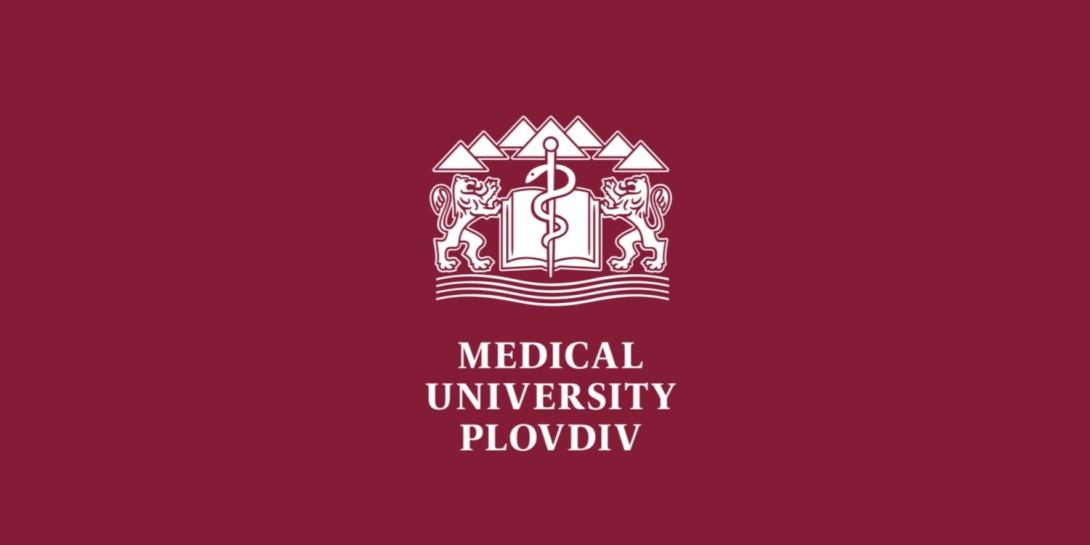The Medical University of Plovdiv – part of the innovative MAGNET project
MAGNET project (Managerial And GoverNance Enhancement through Teaching) is an agreement between the European Education and Culture Executive Agency (EACEA) and 12 higher education institutions of Western Balkan countries with a focus on university pedagogy – the pedagogical and didactic knowledge, skills, and understandings that academic educators need to improve their way of teaching and the student learning process. The coordinator of the Project is the Democritus University of Thrace in Greece.
At the Medical University of Plovdiv, the Project is implemented by a team led by Prof. Dr. Ani Belcheva, MD, Deputy Rector for Academic Activities of the University and Project Coordinator for Bulgaria.
The main objective of this Project is to create a consortium of higher education institutions sharing the new paradigm for improving university pedagogy.
Within the framework of the MAGNET project, educators of all 12 participating partners from 8 countries in the Western Balkans region will be able to collaborate at intra-national, regional, and inter-regional levels. This partnership is expected to lead to the creation of a network of Centers for Teaching and Learning.
The main objectives of the Project include the creation of centers for teaching and learning, the transfer of know-how, the distribution of educational materials, and the creation of a sustainable network BalkaNetUP (Balkan Network for University Pedagogy). The functioning of this network will help the improvement of university pedagogy, an essential pillar for the implementation of the European Higher Education Area.
The creation of a sustainable Balkan network for university pedagogy is an innovative idea to share innovative comprehensive methods and tools for teaching and learning in higher education institutions of the Western Balkan countries. The transfer of know-how will take place from countries that have active Centers for Teaching and Learning to other partner countries.
Project activities to achieve the goals include: research and analysis of teaching staff needs for all participating higher education institutions, creation of centers for teaching and learning, launch of the Balkan Network for University Pedagogy for communication and sharing of all results of the MAGNET project, development of training courses based on the analysis of needs, joint work of the partners through webinars, face-to-face meetings, seminars and conferences, etc.
In the implementation of the activities, innovative methods, new tools, and student-oriented approaches and applications will be applied, taking into account both the development of the university and the culture and specifics of the academic and learning community.
The expected results are the implementation of modern, innovative, transformative, student-oriented educational strategies in the higher schools of the Western Balkans, the formation of BalkaNetUP through the integration of knowledge, good practices, and shared experience for academic educational processes, the creation of centers for teaching and learning in the higher educational institutions, launch of e-Net in support of BalkaNetUP, as well as constant upgrading of the teaching and learning methods.
The Project implementation period is from December 2022 to November 2025.
From 16.02.2023 until 18.02.2023, the first in-person workshop of the participants was held in Alexandroupolis, Greece. Representatives from all 12 partners from 8 countries were present – Greece, Albania, Serbia, Montenegro, Kosovo, Bosnia and Herzegovina, and Bulgaria.
From the Medical University of Plovdiv, Prof. Dr. Ani Belcheva, MD, Deputy Rector for Academic Activities at the University and Project Coordinator for Bulgaria, and Sofiya Goneva – representative of the ERASMUS Office of the Medical University of Plovdiv, participated.
The participants of the meeting focused their efforts on the launch of the Balkan Network for University Pedagogy of Centers for Teaching and Learning (for the countries of the Western Balkans (BalkanetUP). Through the centers /CTL/, innovative methods and tools for teaching and learning will be introduced in higher education institutions, as well as student-oriented educational approaches by ensuring digitization and digital tools in the processes of learning the material.
The program included: a discussion on the role of the functioning of CTL in universities and their proven added value for building teaching capacity, informing about the goals, structure, and activities for the establishment of BalkanetUP, as well as quality assurance measures in higher education.
At the meeting, in addition to the rich lecture prepared by the host-coordinators, the participating members had the opportunity to work together in small groups and were able to discuss the optimal functions that will be undertaken by the CTL to increase the quality of the educational process: seminars, lectures, MOOCS, open dialogue on good practices, etc.
The partners from LOGOS College University introduced the Quality Action Plan to the attendees. The representatives from the University of Patras presented the methodology of the needs analysis study, which each partner will conduct and analyze within their own university.
Within the framework of the meeting, a one-day CTL conference was held at the Democritus University of Thrace (Greece) on the topic “Learning Cycles in University Pedagogy” – a demonstration of the success of CTL and the positive results achieved by implementing CTL activities in the teaching practice.

